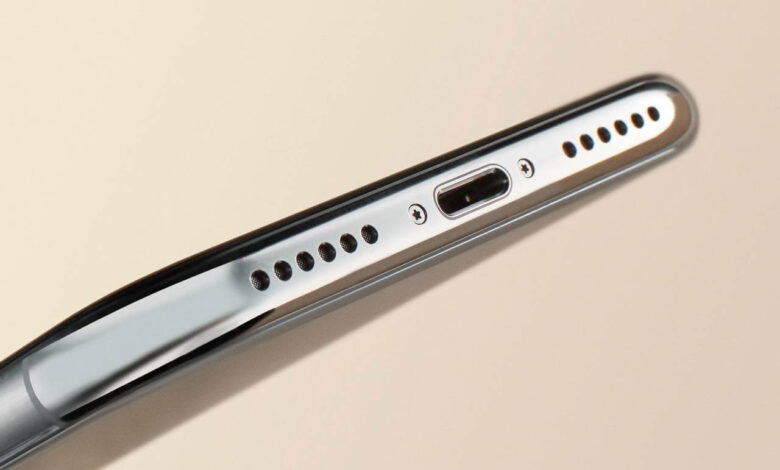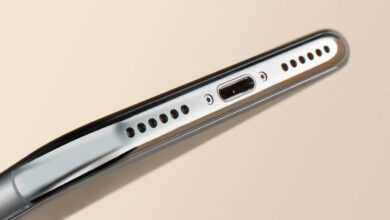Why Does My Phone Speaker Sound Distorted? Understanding Audio Issues

When your phone’s speaker begins to sound distorted, it’s understandable to feel a little frustrated. After all, clear audio is essential, whether you’re taking calls, listening to music, or catching up on the latest videos. Distortion can transform a pristine sound into a crackly, unclear mess, which is never pleasant. It’s important to remember that this common issue can stem from various sources – from simple debris in the speaker grille to software glitches or even hardware malfunctions.
Addressing distorted sound from your phone’s speaker effectively first means identifying the root cause. It could be as trivial as a speck of dust or as serious as a damaged speaker component. Sometimes, prevention is as simple as keeping the volume at a moderate level to avoid overstressing the speaker. However, if you’re past the point of prevention, there are still straightforward fixes you can attempt before considering professional repair.
Keeping your phone in tip-top shape can enhance your user experience significantly, and that includes maintaining crystal-clear sound. As you read on, you’ll gain insights into the common causes of speaker distortion and how to address them, ensuring your device delivers the best sound quality possible.
Common Causes of Distortion
When your phone speaker sounds distorted, it can be quite frustrating. Understanding the common reasons behind this issue can help you identify and solve the problem quickly.
Volume Levels
Your speaker can get distorted if you frequently play audio at maximum volume. High volume levels can strain the speaker components, leading to a distortion of sound. Ensure you’re setting a moderate volume for optimal audio clarity.
Speaker Damage
Distortion may also occur because of physical damage to the speaker itself. This can be due to exposure to water, a drop, or even accumulated dust. A professional repair or cleaning could be necessary if the speaker is damaged.
Software Glitches
Occasionally, software issues within your phone might cause sound distortion. This can often be fixed by restarting your phone or updating your software to clear out any temporary glitches.
Audio File Quality
Lastly, the quality of the audio files or streams you’re playing can affect sound output. Low-quality or compressed files might not play well through your phone’s speakers. Using high-quality audio sources can minimize the risk of distortion.
Troubleshooting Steps
If your phone speaker is producing distorted sounds, there are several troubleshooting steps you can follow to potentially resolve the issue.
Lowering the Volume
Check if your speaker volume is set too high, which can often lead to distortion. Reduce the volume to a moderate level and notice if the sound quality improves.
Restarting Your Device
Restart your phone to clear any minor software glitches that may be causing the distortion. This step can often reset the system and improve audio performance.
Updating Software
Ensure your device’s software is up to date. Software updates can fix existing bugs and improve overall functionality, including audio output.
Checking for Obstructions
Examine the speaker grills for any visible obstructions such as dirt, dust, or debris. Carefully clean them without pushing debris further into the device. If your speakers have been exposed to water, use a service like Fix My Speaker to help eject water from the speakers.
Speaker Maintenance Tips
Proper speaker maintenance can prevent distortion and ensure a clearer sound from your phone’s speaker. A little care can go a long way in preserving your device’s audio quality.
Regular Cleaning
- Materials: Use a soft, lint-free cloth and a soft-bristled brush.
- Frequency: Aim to clean your speaker gently every month or as needed.
Avoiding Moisture
- Prevention: Keep your phone away from water and high humidity.
- Damage Control: If exposed to moisture, power off your phone and let it dry completely before use.
Safe Storage
- Environment: Store your phone in an environment with moderate temperatures.
- Protection: Use a protective case to minimize dust accumulation and physical damage.
Professional Repair Options
When your phone speaker sounds distorted, considering professional repair options can ensure a high-quality and reliable fix. Here’s a quick overview of services you may encounter.
Warranty Service
If your phone is still under warranty, check your warranty coverage. Manufacturers often offer free repairs for issues like speaker distortion, provided the problem wasn’t caused by misuse. Contact customer service or visit the company’s website to initiate a warranty claim.
Authorized Repair Centers
For out-of-warranty services, or if you prefer expert handling, locate an authorized repair center. These centers are:
- Endorsed by the phone manufacturer
- Likely to use original parts
- Staffed with technicians trained specifically for your device
DIY Repair Kits
If you’re comfortable with hands-on fixes, DIY repair kits might be an option:
- Purchase a kit that includes tools and replacement parts
- Follow detailed instructions, often provided by the kit or available through online tutorials
- Be mindful of the complexity of the task and the potential risk of voiding any remaining warranty
Prevention Techniques
Protecting your phone speaker from distortion starts with a few simple habits and precautions that ensure a longer life for your audio output. Here’s how you can minimize the risk of distortion:
Moderate Volume:
- Avoid Max Volume: Consistently playing sound at maximum volume can damage your speaker. Keep the volume at a moderate level.
Physical Care:
- Use Cases and Covers: Protect your phone from falls and impacts with a case.
- Check for Debris: Regularly, gently wipe the speaker grille with a soft, dry cloth to prevent dust build-up.
Environmental Factors:
- Avoid Moisture: Keep your phone away from liquid spills or high humidity areas.
- Temperature Control: Excessive heat or cold can damage your phone’s components. Store it in a dry, temperate place.
Equalizer Settings: Adjust your equalizer settings to suit the type of audio content you’re listening to, which can reduce the likelihood of certain frequencies causing distortion.
When to Replace Your Phone
Your phone is an essential part of daily life, and having clear sound quality is crucial for calls, videos, and enjoying media. However, if you notice persistent distortion in your phone speaker’s sound that you can’t fix with cleaning or settings adjustments, it might be time for a change.
-
Persistent Distortion: If you’ve attempted to clean your speaker grills and adjusted your audio settings without any improvement, your phone may have a hardware issue.
-
Professional Repair Infeasible: When repair costs approach or exceed the value of your phone or if the damage is irreparable, consider upgrading to a new model.
-
Age of Your Phone: Technology advances rapidly. If your phone is several years old, it may not be capable of delivering the sound quality of newer models.
-
Advancements in Technology:
- Improved Sound: Newer models boast superior audio hardware.
- Enhanced Features: Enjoy updated features that often accompany new mobile technology.
-
Cost-Benefit Analysis: Weigh the cost of a new phone against the continued struggle with poor sound quality.
| Situation | Suggestion |
|---|---|
| Failed Fixes | Look into replacement options. |
| High Repair Cost | Evaluate the worth of repair versus replace. |
| Technological Stride | Upgrade for better performance. |
Remember, your satisfaction with your device is paramount. If compromised audio is diminishing your experience significantly, treat yourself to a new phone that can provide the clear and crisp sound you deserve.
Understanding Phone Speakers
When addressing why your phone speaker might be producing distorted audio, it’s essential to get a basic understanding of how phone speakers work.
Speaker Components: Your phone speaker consists of a diaphragm and a magnetic coil, both work together to convert electrical signals into sound.
Audio Signals: Sound is produced when your phone’s amplifier sends an audio signal to the speaker, causing the diaphragm to vibrate. These vibrations create the sound waves you hear.
Volume Levels: Managing volume is crucial. Very high volumes can lead to distortion, as the speaker may not handle excessive vibration well.
- Moderate Volume: For clear sound, stick with this.
- Maximum Volume: Avoid this to reduce distortion risks.
Physical State: If you notice a decrease in sound quality:
- Check for visible damage like dents or cracks.
- Ensure there’s no dust, lint, or blockage on the speaker grille.
Maintenance Tips:
- Keep the speaker grille clean. Use a soft brush or a piece of tape to gently remove any debris.
- Avoid exposing your phone to liquids, which can harm your speaker’s internal components.
By keeping these details in mind, you’ll better understand what might cause distortion and how to prevent it. Remember, your phone’s speaker is a precise component and should be treated with care.
